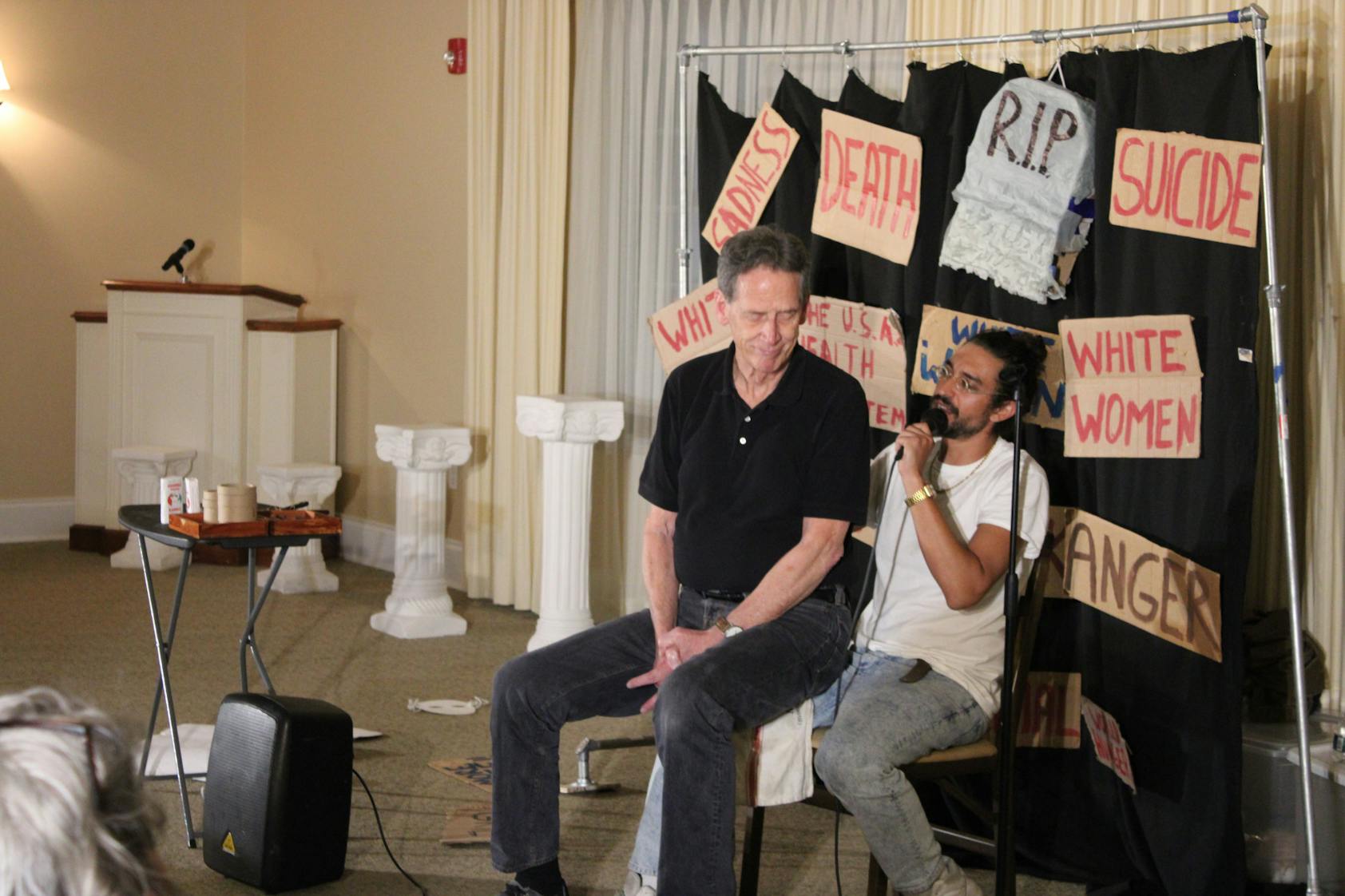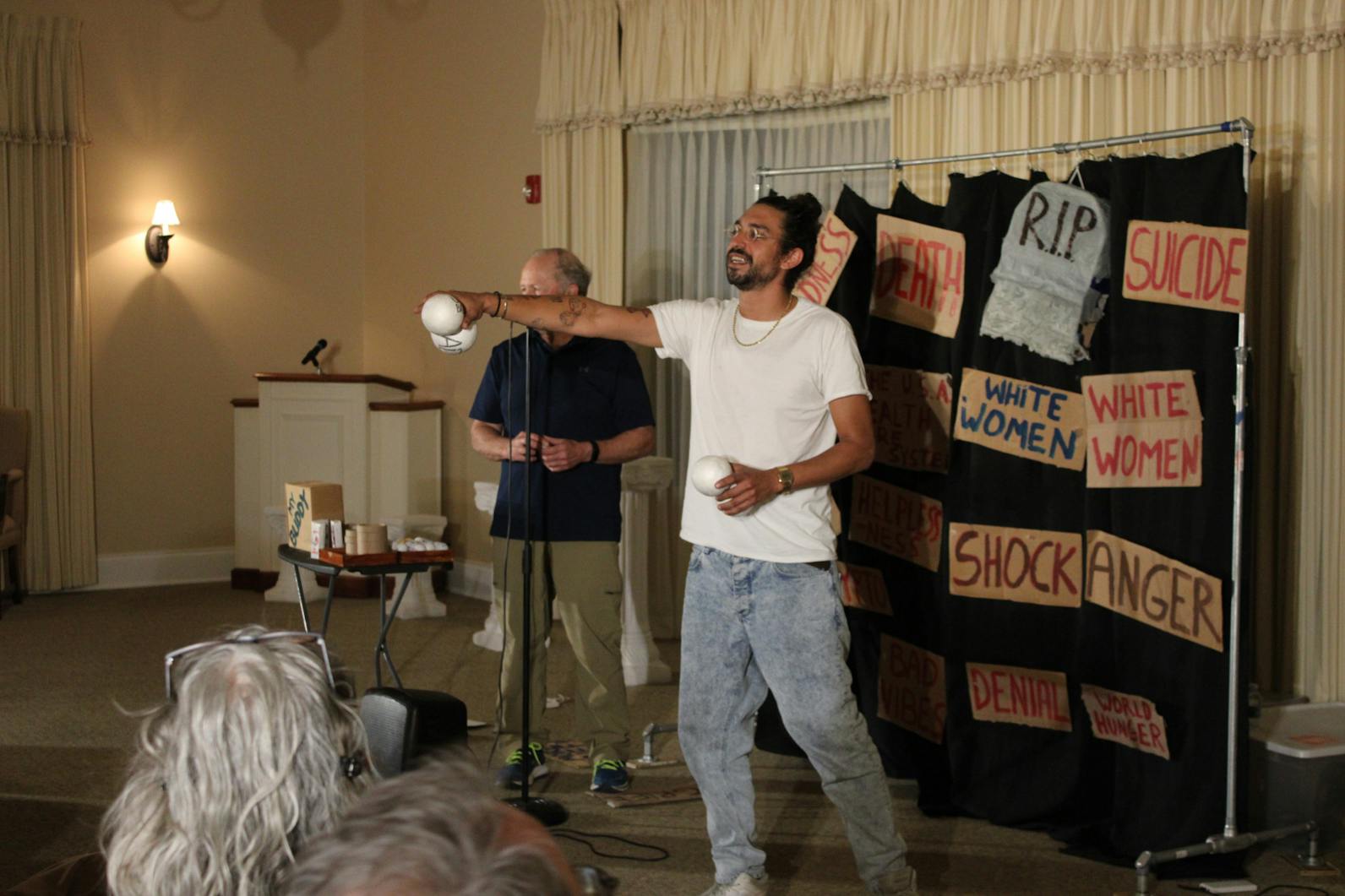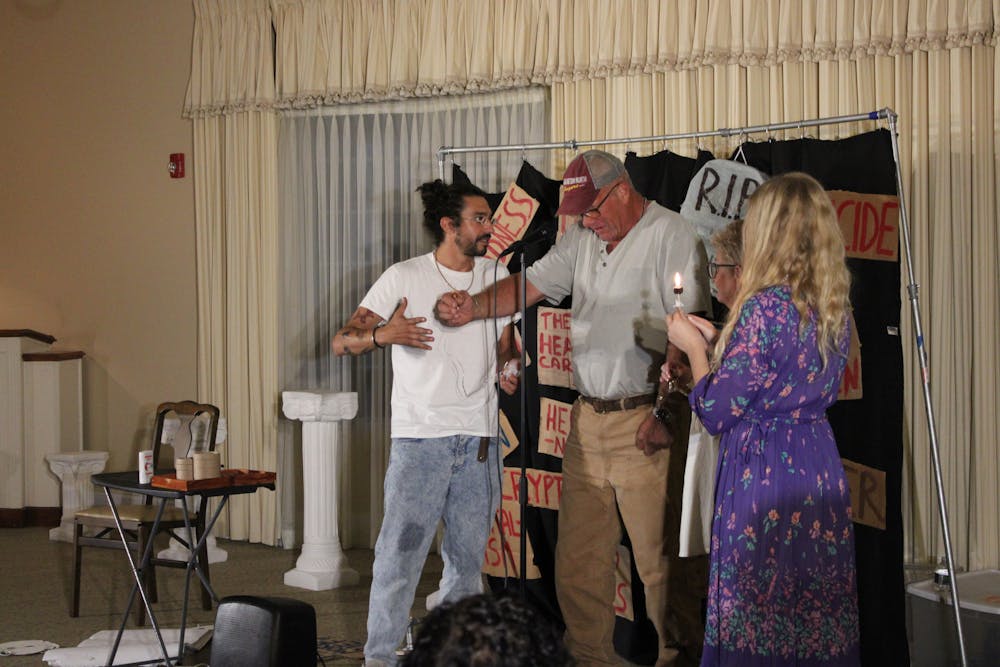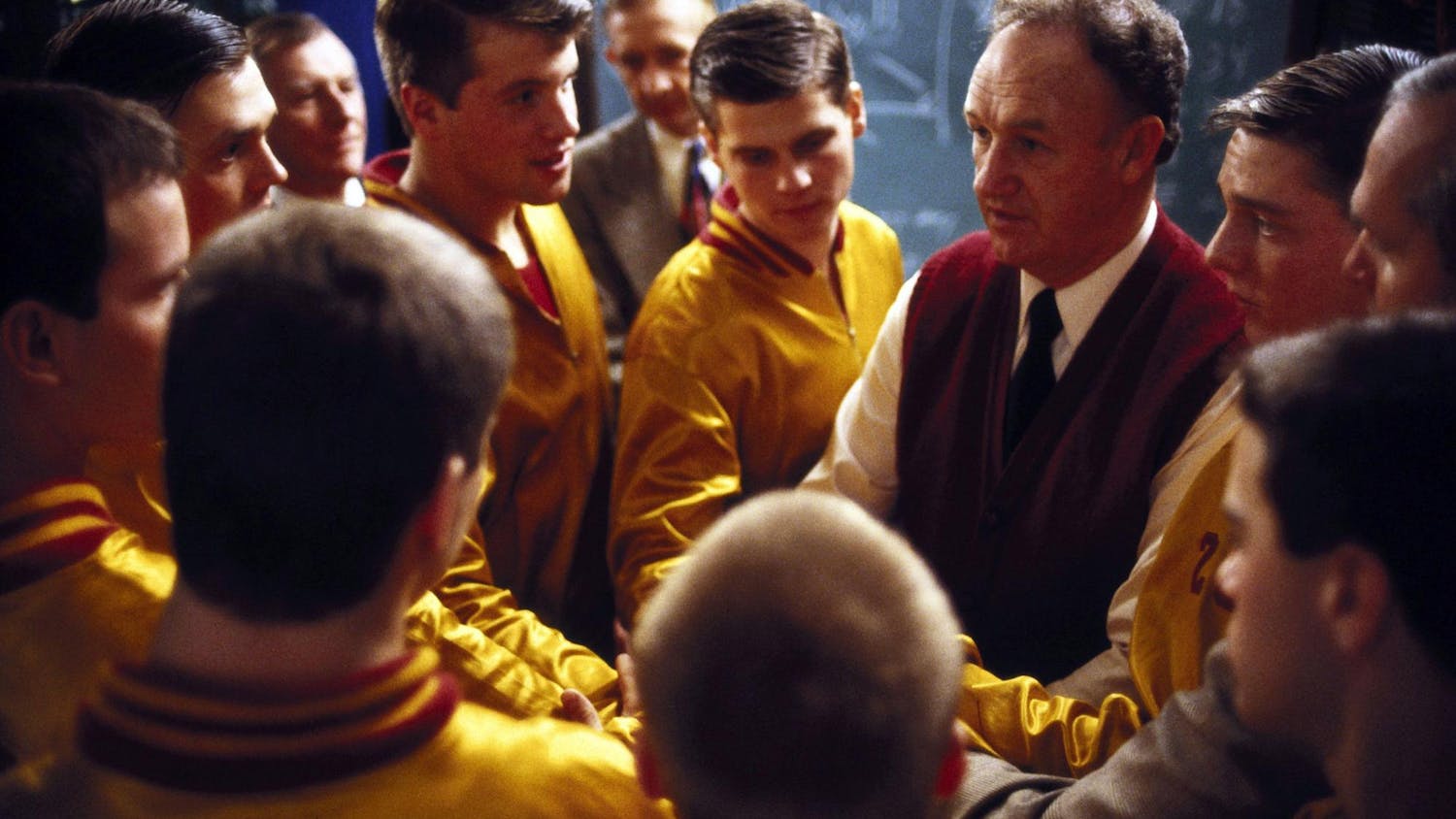NYC Comedian Ben Wasserman brought vulnerability and laughter to Bloomington’s Allen Funeral Home and Crematory on Oct. 24. During one of the last shows on his independent, cross-country “Live After Death” tour, he hugged an audience member for the first time and taught a retired director of chaplaincy how to employ comedy as a grieving mechanism.
The show involved many bits, from Italian advertisements to cutting onions, but Wasserman focused on the audience members and their personal experiences with grief, along with his own.
Wasserman’s father died in 2017 and his grandfather followed almost exactly one year later. His uncle passed away another year later and, between those three deaths, four of his friends also passed away. After grieving the deaths of seven loved ones within three years, and acknowledging COVID-19 also took many lives, he decided to create a show to commemorate his grief and others' — to make people feel less alone, including himself.
Fittingly, he decided to perform the tour in cemeteries and funeral homes to transform peoples’ relationships with these places traditionally associated with sadness.
“We only go into them when we are at our worst or saddest, or when we are confronting death, because it's happening in our lives,” he said. “I am a firm believer that we need to start talking about this stuff well before and that we have to make space for that kind of conversation well before people are actually dealing with it.”

Audience member, John Vanderzee, sits on comedian Ben Wasserman's lap as he pretends to perform a ventriloquist act on Oct. 24 at Allen Funeral Home and Crematory. The show involved many interactive aspects.
Wasserman introduced the show disguised as Sal, a man hidden behind a wig, beard, hat and shirt with the label “intimacy director.” He imitated an Italian accent and ensured consent was willfully given by the entire audience before beginning the unique comedy show.
“It's not enough in comedy to be funny anymore,” Wasserman said. “You have to make people feel, you have to make them think, you have to move people, and I hope you're ready to be moved tonight.”
The room was draped with beige curtains and comfortable chairs designed for grieving families, but — on this one-of-a-kind night — the audience was mainly confused and curious as to what was to occur.
Wasserman had set up a game-show-like “Wheel of Vulnerability,” which he spun throughout the night, landing on vulnerable prompts for the audience to share their experiences with funerals, wills and last words, hoping to make the audience cry. He stood in front of a backdrop peppered with controversial phrases including white women, the U.S.A. health care system, suicide, death and sadness.
The show had several reoccurring bits throughout the night. When an audience member would cry, Wasserman would queue Italian music and perform an advertisement for “Tony’s Italian Tissues: hot, oven fresh, never soft.”
There were also bingo cards provided at the entrance to the show. Boxes were checked on the cards after “signs of healing,” a “heckler destroyed,” “a lil bit of witchcraft” and any “death defying stunt.” On the back of the bingo cards, there was a space for audience members to write the name of a loved one, someone they would keep in mind during the show.
During a juggling act, Wasserman had an audience member throw labeled balls at him, adding things like his grandmother’s dementia, sick cats and breakups to the things he was literally juggling throughout the three years full of loss.
One of the balls was labeled “hates eggs,” which was soon explained to be a horrific addition considering the next ball was an actual hard boiled egg which he caught and consumed.
Wasserman also said when your loved ones die, your own life still goes on, even if you’re not ready for it. His friends wanted to treat him to breakfast, but to him, it was like he had to juggle interpersonal relationships along with his mourning.
"I do remember that was the first time I ate out after my dad died and I was just so mad that the restaurant was open, like aren’t we still in the national period of mourning for my dad?” Wasserman said.
While Wasserman would call on audience members, he’d ask their name and who they were thinking of.
Throughout the show, audience members were invited into conversations about their own encounters and memories with loss and grief. The Wheel of Vulnerability landed on funeral memories and an audience member recalled a celebration of life, which was held in a field that was formerly a cow pasture.
Emily Gall, a funeral director at Allen Funeral and Crematory, shared her first experience at a funeral as a child, at which she feared the body would move. Now, she said she’s fascinated with death; she collects animal bones and fossils and encourages grieving families to use humor to deal with their grief.

Comedian, Ben Wasserman, gestures to the crowd during an interactive comedy show on Oct. 24 at Allen Funeral Home and Crematory. The show was full of vulnerability and laughter.
At Wasserman’s father’s funeral, “Here Comes the Sun” by The Beatles was sung. In the years following that funeral, Wasserman officiated multiple friends’ weddings that played the same song as they walked down the aisle.
Wasserman consistently made the entire room explode into laughter, but also brought to light some harsh realities about dealing with death and shared his own overwhelming and sorrowful experiences.
He talked about the “three-month window” in which people check in on someone who has recently grieved a loved one. This immediately led to a joke making light of the fact that, for a while, he was losing someone every three months, so he was being checked on consistently.
During a ventriloquist act, audience member John Vanderzee sat on Wasserman’s lap and listened to him as he spilled his fears, thoughts and emotions to the crowd, forcing Vanderzee to move his mouth along with Wasserman’s own encouraging words.
Vanderzee was the director of chaplaincy, providing spiritual care at IU Health Bloomington Hospital for 24 years and is now retired. He said funny things have happened during his career, but Wasserman taught him it’s okay to laugh at death.
Wasserman was candid about his own fear of death and the unusual relationship between his art and his loss.
“It's hard to be both scared of dying and sometimes thinking about suicide, and it's just a really wild emotional place to be,” he said.
Since Wasserman expressed his wishes to speak to his father, he invited three audience members to join him in conducting a séance. One of them held a candle, one rang a bell and the last person held a string of lights.
When Wasserman’s father supposedly entered the room, the bell would ring and the string of lights would illuminate. After Wasserman took his chance to speak to his father through an audience member who embodied him, which elicited many laughs, he asked the crowd if anyone would also like to take advantage of this opportunity.
One audience member timidly raised his hand, and the crowd went quiet. He announced his brother died last spring and continued to talk about how he wished he had written him more letters.
Immediately following his moment of vulnerability, Wasserman brought a package of Tony's Italian Tissues and a hug to the man.
Wasserman ended the show with the song “Here Comes the Sun” by The Beatles, just like his father’s funeral — then used a cleaver to chop a gravestone pinata.
“If everyone just walked away calling someone who they loved after the show, and just saying, ‘Hey, I love you, and you're a good person or something like that, or I'm thankful to have you in my life,’ that's a win for me,” he said.




